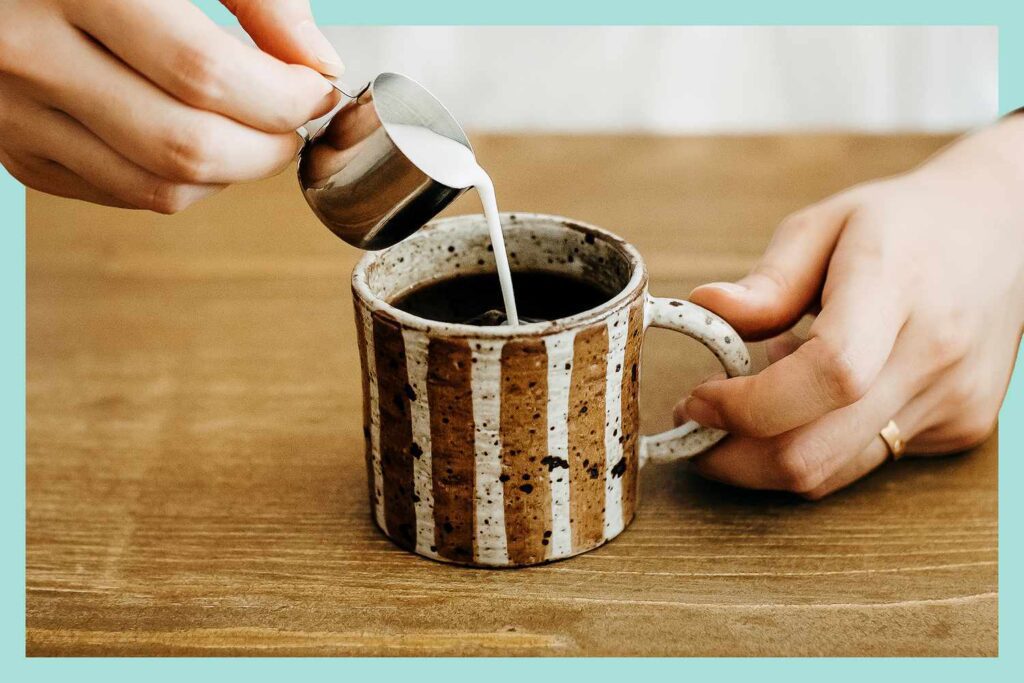You love a good cup of coffee in the morning, but do you know what you should never add to it?
In this article, we will uncover the surprising ingredients that you should avoid putting in your beloved brew.
From strange concoctions to bizarre flavor combinations, we’ll explore what you should avoid to keep your coffee tasting delicious and enjoyable.
So, grab your mug and get ready to discover the questionable additions that should never be in your morning joe.
Sweeteners
Artificial sweeteners
Artificial sweeteners may seem like a guilt-free way to enjoy a sweet cup of coffee, but it’s essential to be mindful of their potential risks. While they can provide the sweetness you crave without adding extra calories, studies have raised concerns about their long-term effects on health. In animal studies, some artificial sweeteners, such as aspartame, have been linked to issues like headaches, dizziness, and even cancer. Opting for natural sweeteners like honey or maple syrup is always a good idea.
Refined sugar
Refined sugar is another common sweetener that many people add to their coffee. However, it’s worth considering the negative impact of excessive sugar consumption on your overall health. Too much sugar not only contributes to weight gain and increased risk of chronic diseases like diabetes, but it can also lead to energy crashes and tooth decay. If you want to cut back on sugar, try gradually reducing the amount you add to your coffee or experimenting with alternatives like coconut sugar or stevia.
Processed syrups
Processed syrups, like flavored coffee or pancake syrups, are often loaded with added sugars and artificial ingredients. These syrups can quickly turn your cup of coffee into a sugar-laden dessert. While they may add a burst of flavor, they also contribute empty calories and can lead to adverse health effects over time. Instead, consider using natural flavorings like vanilla extract or cinnamon to enhance the taste of your coffee without the unnecessary additives.
Dairy Products
Milk substitutes
Milk substitutes like almond milk or soy milk can be an excellent option for lactose intolerant or following a vegan lifestyle. However, choosing unsweetened varieties is essential to avoid adding unnecessary sugar to your coffee. Some flavored milk alternatives also contain artificial additives or thickeners, so reading ingredient labels carefully is essential.
Powdered creamers
Powdered creamers may seem convenient, but they often contain a list of questionable ingredients. These creamers are typically high in trans fats, which are known to raise harmful cholesterol levels and increase the risk of heart disease. They also commonly contain additives like artificial flavors and preservatives. Consider natural options like coconut milk or half-and-half if you prefer a creamier coffee.
Alcohol
While adding alcohol to your coffee may sound tempting, it’s best to exercise caution. Alcohol is a depressant that can interact with any medications you may take. It can also impair your cognitive abilities and affect your judgment.
Additionally, excessive alcohol consumption is associated with various health issues, including liver damage, addiction, and an increased risk of accidents. So, save the alcohol for special occasions and enjoy your coffee without it.
Flavored Oils
Flavored oils can add a unique touch to your coffee, but choosing the right ones is essential. Some flavored oils, especially those that are artificially flavored, can contain additives or chemicals that may not be suitable for consumption.
Opt for high-quality, natural-flavored oils like vanilla or hazelnut designed explicitly for culinary use. Always read the labels and ensure that you’re using oils that are safe to consume.
Salt
While a pinch of salt can enhance the flavor of many dishes, it’s best to avoid adding salt to your coffee. The coffee beans contain natural compounds that provide a rich and robust flavor.
Adding salt can alter the taste and may make your coffee unpleasantly salty. Excessive salt intake can also contribute to high blood pressure and other health issues. So, stick to enjoying your coffee without the added salt.
Unregulated Additives
Illegal substances
You should never add any illegal substances to your coffee. Abusing illicit drugs can have severe consequences for your health and well-being. Illicit substances are not regulated, and their purity and potency are often unknown.
In addition to the health risks, engaging in illegal activities can have legal consequences and negatively impact your personal and professional life.
Unknown powders or pills
It’s crucial to exercise caution regarding unknown powders or pills. Adding substances to your coffee without knowing their composition or origin can be extremely dangerous. It’s impossible to predict their effects or potential interactions with other substances you may be consuming, including medications.
Always be mindful of what you’re putting into your body, and avoid experimenting with unidentified powders or pills in your coffee or any other food or drink.
Spices and Herbs
Unsuitable spices
Experimenting with spices in your coffee can be a fun way to add extra flavor, but not all spices are suitable. Certain strong spices, like cayenne pepper or chili powder, may overpower the taste of your coffee and create an unpleasant experience.
It’s best to stick to milder spices like cinnamon, nutmeg, or cardamom, which can complement the coffee’s natural flavors without overwhelming them. Remember, a little goes a long way when it comes to spices, so start with small amounts and adjust to your liking.
Medicinal herbs
While some herbs, like peppermint or lavender, can add a refreshing twist to your coffee, it’s essential to be cautious with medicinal herbs. Herbal remedies and supplements can interact with medications you may be taking or have potential side effects. Always consult a healthcare professional before incorporating medicinal herbs into your routine, including adding them to your coffee.
Cooking Oils
Cooking oils, such as vegetable or olive oil, are not meant to be consumed in their pure form and should not be added to your coffee.
These oils are primarily used for cooking or as a dressing for salads, and their flavor and consistency are unsuitable for enhancing coffee’s taste. Like flavored oils, stick to using oils explicitly designed for coffee.
Medications
It’s crucial to separate your medications from your coffee routine. Certain medications, such as antibiotics or blood pressure medications, require specific conditions for absorption and effectiveness.
Mixing them with coffee can interfere with absorption or amplify their side effects. It’s best to take your medications separately, following the instructions provided by your healthcare professional, and enjoy your coffee before or after the appropriate time frame.
Detergents or Cleaning Agents
This may seem obvious, but it’s essential to emphasize that detergents or cleaning agents should never come into contact with your coffee or any food or drink.
These substances are highly toxic and can cause severe harm if ingested. Always keep your cleaning products separate from your coffee area and ensure thorough washing and rinsing of any equipment used in coffee preparation to avoid contamination.
In conclusion, while there are plenty of creative ways to enhance the taste of your coffee, it’s essential to be mindful of what you’re putting into it. Avoiding artificial sweeteners, excessive sugar, processed syrups, and questionable additives can help protect your health and ensure you enjoy a high-quality cup of coffee.
Stick to natural sweeteners, dairy products or alternatives, and flavors designed explicitly for culinary use. And remember, when it comes to medications, illegal substances, unknown powders or pills, and cleaning agents, keep them far away from your beloved coffee. Stay safe, and cheers to a satisfying mug of coffee without any unwelcome surprises!









































